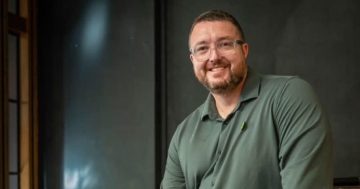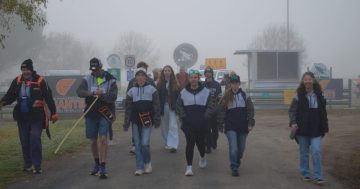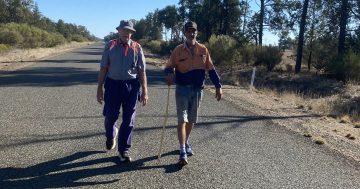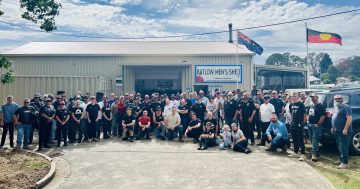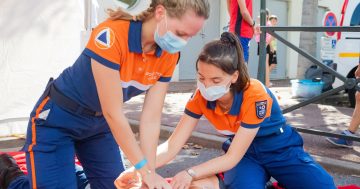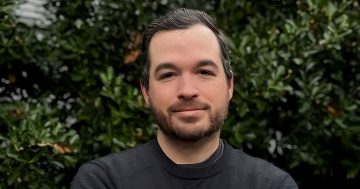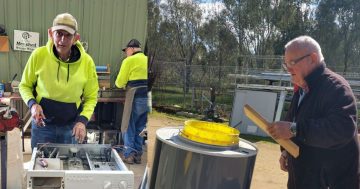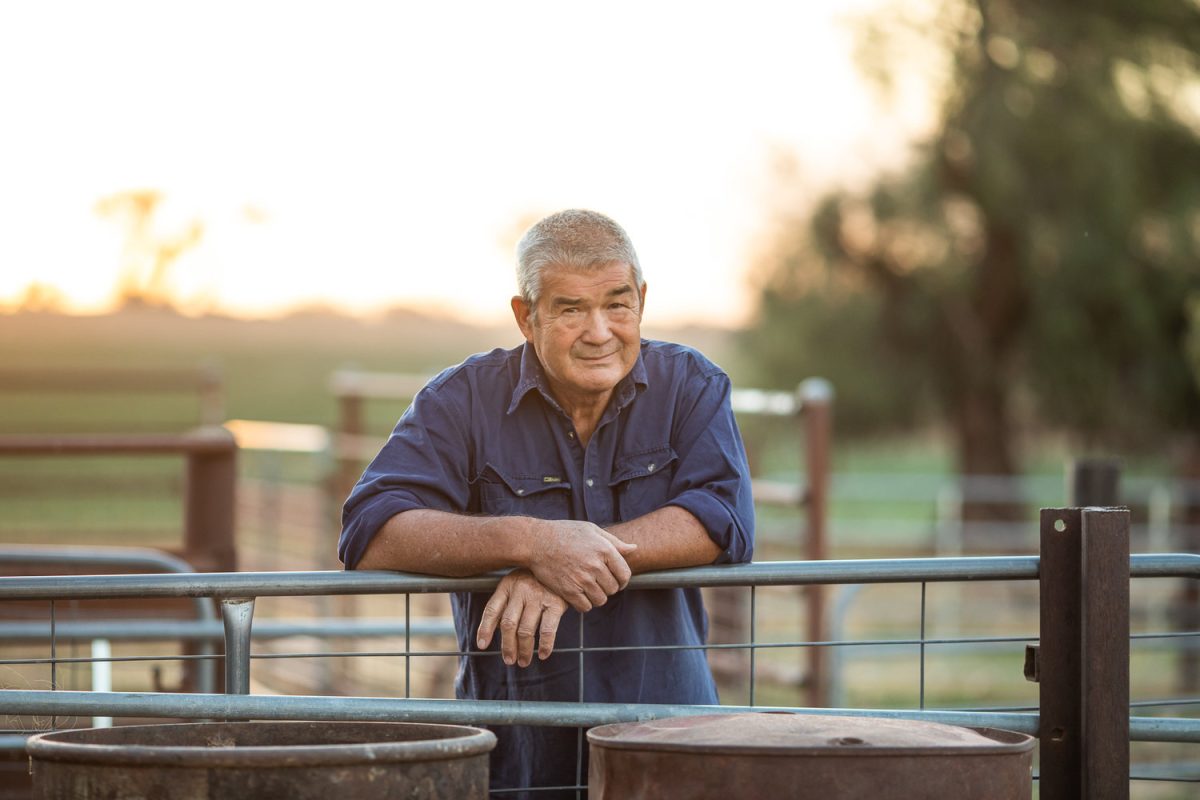
Stockinbingal farmer John Harper says reverting to the simple things – such as active mateship – goes a long way to helping other people realise they are valued. Photo: Mate Helping Mate.
Stockinbingal farmer John Harper vividly remembers the time in his life when he sat on the verandah of his house devoid of motivation and energy.
“All I recall is thinking, ‘I can’t shear, can’t drench sheep, don’t want to put any crop in.’ I just didn’t want to move, I felt bleak and hopeless,” he said.
Aged 45, he’d just given up shearing, a profession he loved.
If it weren’t for his wife, he likely wouldn’t be here today.
“I got help in the end because my wife just whinged and nagged me,” he said. ”I went to the doctors thinking nothing was really wrong with me.
”The doctor is a friend but when he said I had depression, I near throttled him because I thought he was having me on.”
After visiting a counsellor, not believing for a moment his doctor friend was on the right track, John came away with one piece of advice – “Talk to your mates”.
He talked to his mates. Three weeks later, one of those mates also started talking. Then another. John realised he wasn’t alone.
The discovery that talking was not only doing him and his mates good but also creating bridges over troubled waters in helping a growing community of men in rural and regional areas to open up to each other led to more talking over a wider area, to the point where John is now known nationally for his mental health advocacy.
And it’s not just groups of men and communities. Today John also offers his practical advice to a range of agencies and government departments, helping to raise awareness of what people in rural communities are experiencing.
The straight-shooting man on a mission who brought mental health to the kitchen table also turned to podcasting to broadcast his message.
Mate Helping Mate is a series of interviews with locals – be it farmers, farm workers, shearers, mothers, athletes, specialist psychologists and counsellors – all over NSW about what works (and what doesn’t) for helping people struggling in remote and rural communities.
The nine episodes (so far) also go some way to reflecting John’s simple philosophy.
Over the years of chatting with individuals and communities, he still believes talking openly is what’s needed when life and times are tough.
“To your mates, to your neighbours. Talk openly with your partner, who in reality is probably your best mate. This is easy for me to say and advise but harder to actually do when struggling.”
But, he says, the clue lies in active mateship – like pulling up for a chat, shaking someone’s hand, looking them in the eye, making time to listen and showing a genuine interest in their lives.
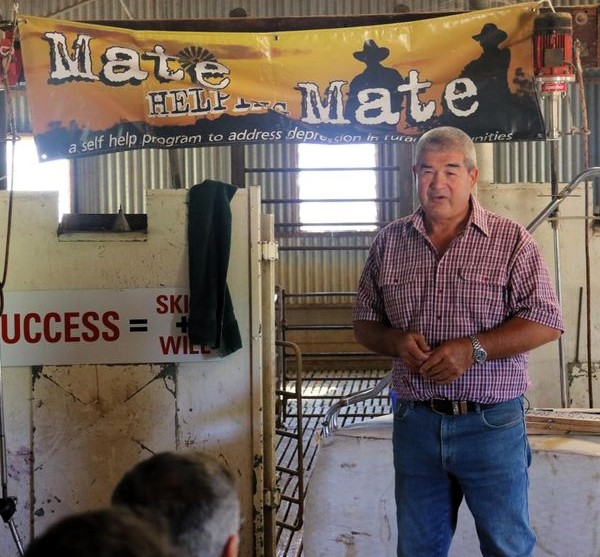
Drawing from his own struggle with depression, John Harper now travels widely to talk with farmers. Photo: John Harper.
“These indicate or demonstrate care and value of the other and this actively addresses the poor mental wellbeing negative thinking of ‘nobody cares about me’ and ‘I’m of no value to my family or community’,” he said.
“When you’re contemplating suicide, your perception, not reality, is that nobody cares and there is no brighter future, but all it takes is one conversation to turn that around, like it did for me.
“It comes back to the fact that most blokes are like me. I couldn’t help myself with my mental illness, but as an Aussie I believe you do anything for a mate.”
He said the concept of mateship and connection had been lost in a modern life so busy that people in rural and regional communities were just driving down the road and waving as they passed.
“Look back to 50 years ago when life was simpler: living on the land provided an income but also a lifestyle,” he said.
He reckons society took a spill when many people believed that to be any good, to be of any value, we had to be the best.
“And to be the best, you were outstanding, you stood at the top of the pyramid, at the apex, and there you are on your ‘Pat Malone’. But that’s not good for overall wellbeing, whether that is an individual, community or nation. It’s united we stand, divided we fall.
“As individuals, as a community or nation, we need to strive to be better, not necessarily to be ‘the best’.”
John’s podcast was released in March 2020 and drew a strong response, quickly jumping to a five-star rating and a healthy 4000 listeners.
“People have to acknowledge they have a problem, then we have to motivate them somehow to move forward.
“Mate Helping Mate came back to the simple fact that helping somebody else makes you feel good.”
Mate Helping Mate is available on Google, Apple, Stitcher and Spotify.
John is also a board member of Rural Outreach Counselling (ROC).
The Wagga-based service started in the Riverina region and now covers southern NSW and parts of northern Victoria, servicing the smaller towns and communities where there is minimal access to on-the-ground mental health services.
For more information, visit its website.
Original Article published by Edwina Mason on About Regional.








